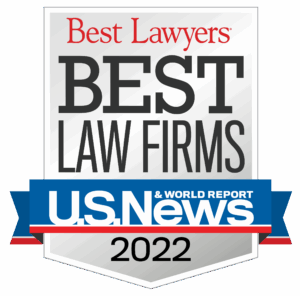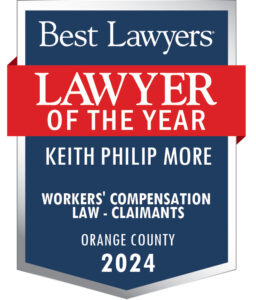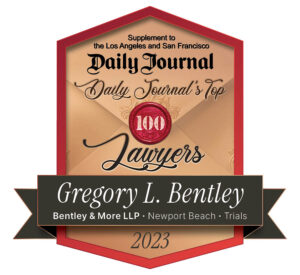Newport Beach Premises Liability Attorney
Property owners in Newport Beach carry a responsibility to keep their premises safe for people who live, work, or visit. When they fail to meet this responsibility, injuries can happen. From upscale shopping centers near Fashion Island to beachside rentals along Balboa Peninsula, unsafe conditions can cause serious harm. If you’ve been hurt because a property owner ignored a safety issue, a Newport Beach premises liability lawyer at Bentley & More LLP can help you understand your legal options and take meaningful action.
Our team understands what you’re going through. A slip, fall, or other injury on unsafe property can change your daily life and lead to expenses you didn’t expect. You shouldn’t have to deal with that alone. We’re here to guide you forward.
What Is Premises Liability Law?
 Premises liability law holds property owners and occupiers responsible for injuries caused by unsafe conditions on their land or in their buildings. These cases revolve around negligence, which means the property owner failed to fix, remove, or warn about hazards.
Premises liability law holds property owners and occupiers responsible for injuries caused by unsafe conditions on their land or in their buildings. These cases revolve around negligence, which means the property owner failed to fix, remove, or warn about hazards.
Premises liability covers a wide range of places, including private homes, retail stores, hotels, amusement parks, restaurants, and public spaces. Hazards might include wet floors, broken stairs, exposed wiring, poor lighting, or other dangerous conditions.
Property Owner Duties and Obligations
Owners must regularly inspect their properties and fix known hazards. If repairs can’t be made right away, they need to post clear warnings. The law also expects owners to stay aware of conditions that could harm visitors. Ignoring a problem or delaying a fix can lead to liability if someone gets injured.
Visitor Classifications (Invitee, Licensee, Trespasser)
In a premises liability case, the injured person’s status when entering the property matters. California law breaks this down into three main visitor types: invitee, licensee, and trespasser. Each group is owed a different level of care by the property owner.
Invitee
An invitee is someone who enters the property for a purpose connected to the owner’s business or benefit. Common examples include shoppers in a grocery store, clients in a law office, or contractors hired to make repairs. Property owners must inspect the premises regularly, fix known hazards, and warn invitees about any risks they can’t fix right away. This group receives the highest level of protection under the law.
Licensee
A licensee visits the property for personal reasons, often with the owner’s permission. This includes guests at a private home or friends stopping by for a visit. Owners must fix or warn about any known hazards that could hurt someone, but they don’t have to inspect for unknown dangers like they do for invitees.
Trespasser
A trespasser enters without the owner’s consent. Property owners don’t have to protect trespassers from unknown hazards, but they can’t create traps or intentionally cause harm. There’s an exception for children under certain circumstances, such as if an attractive nuisance like a swimming pool draws them in. In those cases, property owners might still be held responsible.
Common Types of Premises Liability Accidents
Different settings pose different risks. There are different types of premises liability accidents and they can happen anywhere, including local spots like Crystal Cove trails, the Civic Center lawn, or hotel lobbies near Pacific Coast Highway.
Slip and Fall Accidents
These accidents often happen because of spills, rainwater, or recently mopped floors. Common locations include grocery stores, restaurants, and public restrooms. Failing to dry the area or post warnings can lead to injury.
Trip and Fall Incidents
Uneven sidewalks, loose rugs, and cluttered walkways are common causes. A trip hazard at a shopping plaza or outdoor dining area can result in broken bones or worse.
Inadequate Security Cases
Some injuries happen because the property lacked proper lighting, locks, or guards. If a person gets attacked in a poorly lit parking structure or an unlocked apartment entrance, the property owner may bear responsibility.
Swimming Pool Accidents
Pools can pose risks when fencing is missing, slippery surfaces aren’t treated, or lifeguards aren’t present. This includes pools at hotels, apartment complexes, and even rental properties near Newport Harbor.
Elevator and Escalator Accidents
Malfunctions or poor maintenance can cause these machines to stop suddenly, drop, or trap riders. Malls and office buildings must ensure they’re regularly serviced and inspected.
Falling Object Injuries
Items falling from shelves in retail stores or construction debris dropping from overhead scaffolding can seriously hurt passersby.
Parking Lot Accidents
Uneven surfaces, potholes, broken lighting, or lack of signage can cause both trips and vehicle-related incidents in parking structures and lots.
Who Can Be Held Liable for Premises Liability Accidents?
 Responsibility can fall on more than just the property owner. Multiple parties often play a role in maintaining safe conditions.
Responsibility can fall on more than just the property owner. Multiple parties often play a role in maintaining safe conditions.
Property Owners and Landlords
Owners must monitor conditions, make repairs, and stay informed about known hazards. If a landlord ignores tenant complaints about broken stairs or mold, they could be legally responsible.
Business Owners and Retailers
Retail shops, restaurants, and cafes must inspect their spaces often. If a juice spill isn’t cleaned up and someone falls, the business may owe for the harm caused.
Property Management Companies
These companies often handle inspections and repairs. When they skip routine maintenance or ignore safety warnings, they can share in liability.
Government Entities
Public sidewalks, parks, and buildings fall under city or county oversight. If someone slips at Newport Beach Civic Center or trips on broken pavement at a city park, the government may bear fault—but claims follow different rules.
Contractors and Maintenance Companies
Workers responsible for repairs or upgrades can also be at fault if their work creates a hazard or violates safety codes.
If you’ve been hurt because a property owner failed to address a dangerous condition, you may have grounds for a premises liability claim. A skilled group of premises liability lawyers can help you understand your rights, gather evidence, and pursue the compensation you deserve. Don’t wait—contact a qualified attorney today to protect your legal interests.
What Must Be Proven in a Premises Liability Case?
To move forward with a claim, certain key facts must be shown. The person bringing the case has to establish a connection between the dangerous condition and their injury.
To move forward with a claim, certain key facts must be shown. The person bringing the case has to establish a clear connection between the dangerous condition and their injury. This is why understanding how to prove premises liability is crucial.
Duty of Care
The injured person must show the owner or controller of the property had a duty to keep the space safe. This often depends on visitor status.
Breach of Duty
Next, there must be proof that the responsible party failed to meet that duty. For example, they ignored a leaking pipe or failed to salt a walkway after rain.
Causation
The hazard must be the reason for the injury. Slipping on a floor with no warning sign, for instance, directly connects the unsafe condition to the harm suffered.
Damages
Finally, the injured person must show they experienced actual harm. This could include hospital bills, missed work, or ongoing health problems.
How Long Do I Have to File a Premises Liability Claim?
Time limits apply in these cases. If you wait too long, you may lose the ability to take legal action.
 California Statute of Limitations
California Statute of Limitations
In most situations, California allows two years from the date of injury to file a premises liability lawsuit. Missing that window often means the court will dismiss the case.
Exceptions to the Time Limit
Certain situations pause or extend the deadline. For example, minors may get extra time, or delays may occur if the injury wasn’t discovered right away.
Government Claims Act Requirements
If a city, county, or state agency is involved, the rules change. You must file a government claim within six months of the incident. Failing to do so can end your case before it starts.
What Damages Can I Recover?
The goal of a claim is to help make up for losses caused by the accident. The amount depends on the nature of the injury and how it affects your life.
Economic Damages (Medical Bills, Lost Wages)
These include ambulance rides, hospital stays, surgeries, physical therapy, and any work missed during recovery. If the injury affects your ability to work long-term, future earnings may also be included.
Non-Economic Damages (Pain and Suffering)
This refers to what you’ve been through physically and emotionally. Chronic pain, sleep problems, anxiety, and limits on daily life may count toward this category.
Punitive Damages (When Applicable)
In rare cases, the court may award extra money to punish the wrongdoer. This usually happens when someone acted with extreme recklessness or disregard for others’ safety.
Speak with a Newport Beach Premises Liability Attorney Today
The personal injury lawyers at Bentley & More LLP have years of experience holding negligent property owners accountable. Our firm handles every detail so you can focus on your recovery.
Comprehensive Case Investigation
We’ll gather all the facts about your accident. This includes visiting the scene, reviewing reports, and identifying all parties involved.
Evidence Collection and Preservation
Photos, videos, security footage, and maintenance records can be key. We work quickly to secure and store this evidence before it disappears or gets deleted.
Expert Witness Coordination
We may bring in safety professionals, medical providers, or engineers to explain what went wrong and how it caused your injuries.
Insurance Negotiation
Insurance companies often try to downplay injuries or delay payment. We deal directly with them, pushing for fair compensation based on the true impact of your accident.
Trial Representation
If the responsible party refuses to make a reasonable offer, we’ll take the case to court. Our attorneys prepare strong cases that stand up before a judge or jury.
Maximizing Your Compensation
We don’t settle for less than you need to move forward. We’ll build a case that clearly shows the full extent of your injury, loss, and required care.
What to Do If You’ve Been Injured in a Premises Liability Accident
 Taking the right steps after an accident can help protect your legal rights and improve your recovery process.
Taking the right steps after an accident can help protect your legal rights and improve your recovery process.
Immediate Steps at the Accident Scene
- Seek medical attention right away. Even if injuries seem small, some symptoms take time to show up.
- Document the scene and conditions with your phone.
- Report the incident to the property manager or owner on-site.
- Gather witness information, including names and contact details.
- Take photographs of the hazard, your injuries, and the area around it.
- Preserve evidence like the clothes and shoes you were wearing.
If You’ve Already Received Medical Treatment
- Keep following your doctor’s advice and attend all appointments.
- Save all medical bills and paperwork related to your injury.
- Write down symptoms and changes you notice from day to day.
- Don’t give recorded statements to insurance companies without legal advice.
- Talk to a premises liability lawyer about your next steps.
- Avoid fast settlement offers that may not cover the full cost of your injuries.
Frequently Asked Questions About Premises Liability in CA
Can I still recover compensation if I was partially at fault?
Yes. California follows a comparative fault rule. If you were partly responsible, your recovery may be reduced by your share of fault, but you can still pursue a claim.
What if the dangerous condition was “open and obvious”?
In some cases, property owners still owe a duty to protect visitors. The court looks at whether they took reasonable steps to prevent injury, even if the hazard could be seen.
Do I need to prove the property owner knew about the hazard?
You must show they either knew or should have known. For example, if the hazard was present long enough that a reasonable inspection would have found it, that counts.
What if I was injured on government property?
Claims against government agencies follow different rules and shorter deadlines. Filing the proper paperwork quickly is key to keeping your claim alive.
How much does it cost to hire a premises liability lawyer?
Bentley & More LLP works on a contingency basis. You won’t pay us unless we recover money for you through settlement or verdict.
Let Bentley & More LLP Help
 If a dangerous property condition left you injured, you don’t have to handle everything on your own. Let the team at Bentley & More LLP review your situation and explain your rights. As your trusted Newport Beach persona injury lawyer, we offer free consultations and provide clear answers about how to move forward.
If a dangerous property condition left you injured, you don’t have to handle everything on your own. Let the team at Bentley & More LLP review your situation and explain your rights. As your trusted Newport Beach persona injury lawyer, we offer free consultations and provide clear answers about how to move forward.
Time limits apply, so don’t delay. Call our office today at (949) 870-3800 or submit a form on our website. The sooner we get started, the better we can protect your case and preserve key evidence.
Client Testimonial
“I’ve had the pleasure of working with Bentley & More for the past 5-6 years. Their drive and compassion to earn great results for their clients is obvious to everyone who works with them.
I’m grateful for the opportunity to partner with the firm to help serve their clients.”
– Nicole S. ⭐⭐⭐⭐⭐
Read more of our Google reviews.
Bentley & More LLP – Newport Beach Office
4931 Birch Street
Newport Beach, CA 92660
Phone: (949) 870-3800


